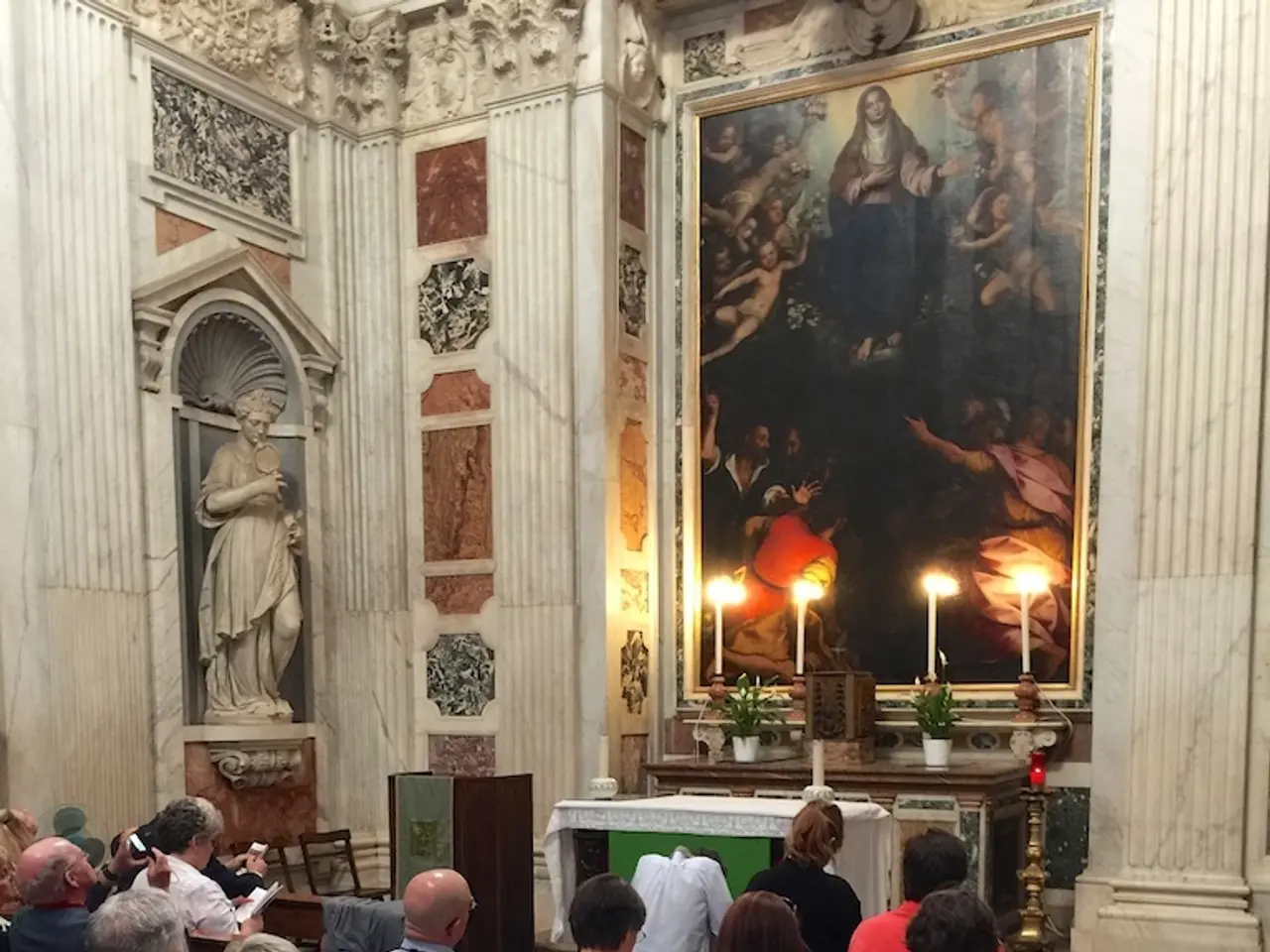Indigenous Approaches: Applying an Ancient Missionary Concept in Contemporary Europe
In the diverse landscape of modern Europe, a renewed focus on indigenous principles is shaping the way Christianity is shared. This approach, rooted in the belief that the gospel should authentically indwell every culture, is gaining traction as Europe grapples with secularization and increasing religious diversity.
The power of language is a significant factor in this mission. While English has become the dominant global language, Europe boasts more than 30 national languages and between 200 and 300 minority languages. This rich linguistic tapestry is a testament to Europe's cultural diversity, and it's essential that the gospel is translated into these indigenous languages to make it relevant and credible.
The United Nations estimates that over 370 million indigenous people reside across 70 countries worldwide, and Europe is no exception. The presence of thousands of Majority World churches in Europe isn't having the impact it should due to leaders not accommodating churches to the culture and context. However, this is changing as indigenous principles are being applied to mission in contemporary Europe.
Native Europeans and Christians from the Majority World are collaborating to "think indigenously," recognising the distinct ethnic, cultural, and historical backgrounds of Europe's native peoples and seeking to present Christianity in forms meaningful to these diverse groups. This involves adapting the gospel to local cultures and working cross-culturally to reach all who live in Europe, respecting indigenous identities rather than imposing foreign patterns of belief or worship.
Scholars affirm that successful missions rely on adaptation and contextualization, making the faith fit indigenous cultures rather than forcing conformity to external models. This is understood as essential in Europe's complex multi-ethnic environment, where native-born Europeans and newcomers both participate in mission efforts, reflecting a dynamic intercultural exchange.
Intercultural churches will not reach everyone, especially in rural parts of Europe where the population is still more than 90% indigenous European. To address this, diaspora churches from the Majority World are facing the challenge of indigenisation in Europe. This involves fostering local theological and missiological reflection and preserving local music written in the indigenous language and musical style.
The concept of indigeneity was important in the Protestant Missionary Movement, and it continues to be relevant today. The number of international migrants residing in Europe has risen significantly over the past few decades, making it the largest destination for international migrants globally. Every nation, city, town, and village in Europe has a unique local culture that distinguishes it from others.
In summary, indigenous principles in contemporary European mission involve valuing local, indigenous cultural identities and histories of native Europeans, contextualising the gospel so it resonates within those cultures, and fostering collaborative mission between native Europeans and Majority World Christians in Europe. This approach revitalises an old missiological principle for the current realities of multi-ethnic, multi-religious Europe, aiming to reach all who call Europe home by honouring their cultural roots in the gospel witness.
This collaborative effort between indigenous Europeans and Majority World Christians is a testament to the transformative power of the gospel. It's a journey that requires flexibility, respect, and a commitment to understanding and embracing the rich cultural diversity that Europe has to offer.
- To ensure the relevance and credibility of Christianity in the diverse European landscape, it's necessary to translate the gospel into indigenous languages and adapt it to local cultures, embodying the principle of indigeneity.
- In the realm of education-and-self-development, understanding and embracing Europe's rich linguistic and cultural diversity is crucial for indigenous Europeans and Majority World Christians working collaboratively in mission, as this aligns with the lifestyle of respect and flexibility essential for successful cultural exchange.




